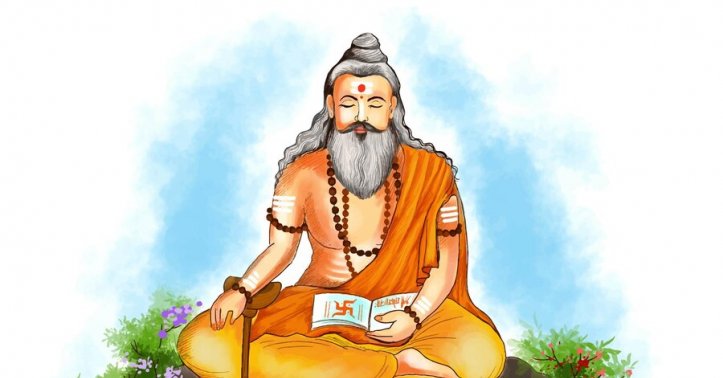
Science in the vedas
Ancient wisdom speaks,
Stars align, cosmos unfolds,
Truth beyond all time.
Dr. Riitesh Sinha, an esteemed scholar and advocate of holistic sciences, emphasizes the profound connection between ancient Vedic wisdom and modern science. According to Dr. Sinha, the Vedas, composed thousands of years ago, embody not only spiritual teachings but also a rich repository of scientific knowledge that remains relevant today. By examining these ancient texts through a contemporary lens, we uncover insights that bridge tradition and innovation.
The Vedas: A Source of Timeless Knowledge
The Vedas, primarily the Rigveda, Yajurveda, Samaveda, and Atharvaveda, are ancient scriptures forming the foundation of Indian philosophy, science, and spirituality. Dr. Sinha highlights that these texts are not limited to metaphysical concepts but include practical scientific principles. "The Vedas were ahead of their time, encompassing cosmology, medicine, mathematics, and environmental sustainability," he states.
Cosmology and Astronomy in the Vedas
Dr. Sinha points to Vedic references to the structure of the universe, celestial phenomena, and planetary movements as evidence of advanced astronomical knowledge. The Rigveda describes the cyclic nature of creation, akin to modern theories of the Big Bang and cosmic evolution.
The Shatapatha Brahmana, a Vedic text, mentions precise calculations of Earth's diameter, solar cycles, and eclipses, demonstrating the ancient sages’ grasp of astronomy. "This knowledge was derived through keen observation and intuitive reasoning, much like scientific inquiry today," says Dr. Sinha.
Medical Insights and Ayurveda
The Atharvaveda serves as a precursor to Ayurveda, the traditional Indian system of medicine. It outlines principles of health, herbal remedies, and surgical practices. Dr. Sinha notes, “From antiseptic techniques using herbs to descriptions of the human body’s anatomy, the Vedas laid the groundwork for medical advancements.”
He further explains how concepts like "Tridosha" (the three humors: Vata, Pitta, and Kapha) parallel modern understandings of bodily systems and their balance. This holistic approach continues to inspire integrative medicine.
Mathematics and Geometry
The Vedas also reflect mathematical brilliance. For example, the Sulba Sutras, ancient texts on geometry, include concepts similar to the Pythagorean theorem, centuries before its formal articulation in the West. "The precise measurements and calculations used for constructing altars and temples showcase a sophisticated understanding of geometry and algebra," Dr. Sinha elaborates.
Environmental Sustainability and Ecology
Dr. Sinha emphasizes the Vedic reverence for nature, evident in hymns celebrating rivers, forests, and wildlife. The concept of "Rta," or cosmic order, reflects an ecological balance crucial for sustainability. “ The Vedas teach us to coexist with nature, a principle that resonates with today’s environmental challenges,” he asserts.
Modern Applications of Vedic Science
According to Dr. Sinha, the rediscovery of Vedic science has significant implications for contemporary research. Whether in renewable energy, alternative medicine, or sustainable living practices, the integration of Vedic principles can provide innovative solutions. For instance, Vedic architecture (Vastu Shastra) aligns with principles of energy efficiency and spatial harmony.
Conclusion: A Fusion of Tradition and Innovation
Dr. Riitesh Sinha’s exploration of the Vedas underscores their enduring relevance. "The Vedas are not relics of the past but blueprints for a harmonious future," he concludes. By blending Vedic wisdom with modern science, humanity can address complex challenges and rediscover a holistic way of living.
This perspective invites a deeper appreciation of ancient texts and their potential to guide modern scientific and spiritual endeavors.








